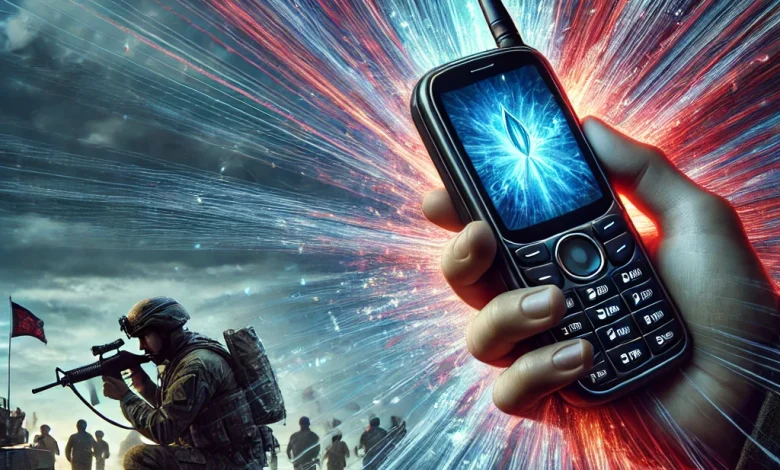Technology in the Grip of War: Is Your Phone a Weapon in Disguise?

By: Gulf Tech News
From Communication Tools to Weapons of War: The Need for a Technology Code of Ethics
In today’s world, technology is no longer just a tool for communication or convenience but a driving force capable of altering the balance of wars and reshaping global security and privacy boundaries. The recent pager explosion in southern Lebanon shocked the world, raising serious questions about the use of everyday technology as hidden weapons in modern warfare. How did we get here, and who bears the responsibility?
Technology at the Heart of Modern Conflict
Reports indicate that the intertwining of technology and warfare has grown at a staggering pace, with unforeseen consequences. Personal devices such as smartphones, smartwatches, and internet-connected gadgets are now tools that can be exploited for tracking individuals, gathering secret information, and even conducting attacks. The recent explosion in southern Lebanon, reportedly using a pager-like device, sparked global alarm about how ordinary devices could be weaponized.
Major tech companies are being scrutinized for their role in the widespread availability of such devices. With billions of units sold, these companies are arguably aware of the potential misuse of their technology in ways far beyond their intended purposes. This raises a critical question: Should these corporations take more responsibility in monitoring how and where their technology is being used?
The Issue of Personal Data Exposure
Today, we are more exposed to the world than ever before. Smartphones, smart TVs, and other connected devices give corporations unprecedented access to our personal data. But the most pressing question now is: To what extent can this data be used against us?
A recent study from the “International Data Protection Center” found that 67% of users feel that their personal information is not secure online, while 45% believe that governments, in collaboration with major tech companies, are exacerbating this threat.
Reports and Studies on the Use of Technology in Warfare
The incident in Lebanon is not the first time that technology has been implicated as a significant factor in conflict. Last year, the “Stanford Institute of Technology and Warfare” published a report indicating that 35% of modern armed conflicts involve the direct or indirect use of digital technologies, from intelligence gathering to launching cyber-attacks.
The report highlights a clear legal gap when it comes to holding companies accountable for their role in enabling these technologies to fall into the hands of warring parties. To date, no clear laws or an ethical code of conduct have been established to limit the sharing of data or sensitive information that could be used in warfare.
Should Technology Companies Be Held Accountable?
Recent calls have emerged to hold tech companies accountable for leaking data or facilitating the use of their technologies in armed conflicts. In an article published by The New York Times, tech researcher Jonathan McKay suggested the creation of an international code of ethics for technology companies. This would ensure that companies refrain from disclosing sensitive data or selling their technologies to entities that could use them for malicious purposes.
On the other hand, tech giants argue that they cannot control how customers use their products after the sale. They believe that the responsibility for data protection lies with governments and security institutions.
Are We Facing a Technological Explosion?
It is clear that the world is on the verge of a new phase of technological warfare, where the battle is no longer confined to traditional weapons but extends to the digital devices in our pockets and on our wrists. As we increasingly depend on technology for every aspect of life, the question remains: Are we truly safe?
An article in Global Tech Journal addressed these concerns, suggesting that countries that import technology, especially those heavily reliant on Western products, may be more vulnerable to these threats. The technology they purchase may carry hidden codes or software that allows manufacturers to access sensitive data about individuals or governments.
Conclusion: A Call for a Technology Code of Ethics
In light of recent developments, the need for a global code of ethics for technology companies is more urgent than ever. This code should ensure that modern technologies are not used in hostile acts or in violating the personal privacy of individuals. It’s time for companies to take greater responsibility, not just for their users, but for the entire world.
The pressing questions now are: Are we prepared for a world where technology is used as a weapon? And will major corporations take steps to prevent this harmful use of their innovations? Only time will tell.





